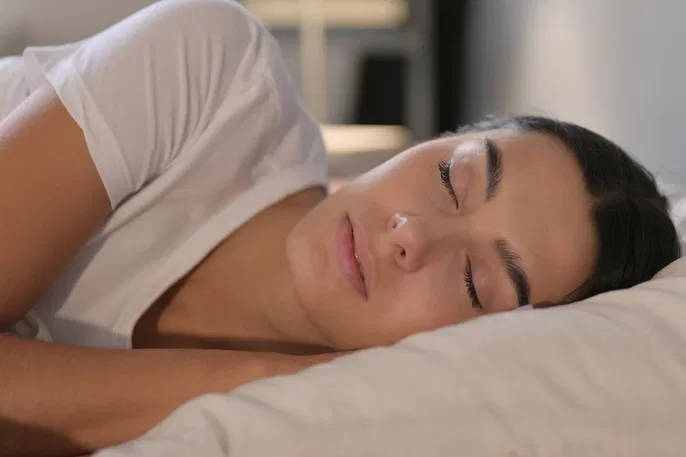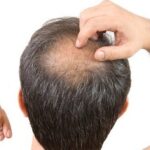How to Fall Asleep Fast
Simple Tips for a Better Night’s Sleep: If you’re wondering how to fall asleep fast, there are several simple changes you can make to your routine that can help you drift off quickly and enjoy a restful night’s sleep. The key is to develop healthy habits that prepare your body for rest.
One of the most effective ways is to set a regular bedtime. Going to bed at the same time each night helps train your body to recognize when it’s time to sleep. This consistency can significantly improve the speed and quality of your sleep.
Another tip is to avoid screens before bed. The blue light emitted from phones, tablets, and computers can interfere with your body’s natural sleep rhythm. Instead, try winding down with relaxing activities like reading or listening to calming music.
Regular exercise is also a great way to improve your sleep. Being physically active during the day helps your body relax more at night, making it easier to fall asleep quickly.
When you are already in bed, a few additional tips can help you fall asleep even faster. Make sure your room is dark and quiet. Darkness signals to your brain that it’s time to sleep, while a quiet environment can help reduce distractions.
If you’re still awake, reading a book or practicing relaxation techniques like deep breathing can calm your mind and prepare your body for sleep.
Why Falling Asleep Fast is Important for Your Health
Struggling to fall asleep can directly impact your daily life. Poor sleep can affect your concentration, making it harder to focus during the day. It can also affect your mood, leaving you feeling irritable or anxious.
In the long run, not getting enough sleep can mess with your appetite, leading to unhealthy eating habits. It can also contribute to serious health problems, such as stress, anxiety, and even memory loss. That’s why it’s essential to find ways to fall asleep quickly and make sure you’re getting enough rest.
The Importance of Restful Sleep
When you fall asleep fast and get the proper amount of sleep, you ensure that your body and mind have the time they need to recover. Quality sleep helps you feel refreshed and energized, supporting your overall health and well-being.
By making small changes to your daily routine and sleep environment, you can improve how quickly you fall asleep and enjoy all the benefits of a good night’s rest. If you follow these tips on how to fall asleep fast, you’ll be well on your way to better health and a more energized day ahead.
Tips on How To Fall Asleep Fast
- Set a Bedtime
To get the right amount of rest, it’s recommended to sleep for 8 to 9 hours each night. This ensures that you wake up feeling refreshed and alert in the morning.
If you need to wake up early, it’s essential to go to bed early as well, even on weekends and holidays. Consistency is key when it comes to sleep.
One helpful tip is to set an alarm on your phone to remind you when it’s time to go to bed. By doing this, you can make sure that you’re adhering to a regular sleep schedule.
However, to avoid the temptation of staying up too late, you might want to consider placing your phone or alarm clock far from your bed.
This way, you have to physically get up to turn it off, which helps prevent you from snoozing through it and oversleeping. Stick to this routine for a few nights, and you’ll start to feel more naturally in sync with your body’s sleep cycle.
- Turn Off the TV and Other Electronics
It’s important to turn off electronics—like the TV, computer, and phone—at least 30 minutes before bed. Electronics emit blue light, which can interfere with the production of melatonin, a hormone that regulates sleep.
Ideally, you should avoid using your cell phone or playing video games in the hours leading up to bedtime, as these activities stimulate the brain and can leave you feeling more agitated, making it difficult to feel drowsy and fall asleep.
Additionally, if you use an alarm clock, it’s a good idea to place it out of sight while you’re in bed. Constantly checking the time when you wake up during the night can cause unnecessary stress and anxiety. This added pressure can make it even harder to fall back asleep.
Even though some people might be able to sleep through these distractions, avoiding them can help most people achieve a deeper and more restful sleep.
By following these tips on how to fall asleep fast, you’ll be taking simple yet effective steps toward improving your sleep quality. Consistency and the right bedtime routine are key components to achieving a restful night’s sleep and waking up feeling energized the next morning.
- Read Before Falling Asleep
One of the best ways to ease into sleep is by reading a book before bed. However, it’s important to only lie in bed when you’re actually feeling sleepy.
If you’re not yet tired, it’s better to sit up in bed or even on a comfortable sofa, and indulge in some light reading. Dim lighting is key during this time, as bright lights can signal to your brain that it’s time to stay awake.
When choosing a book, it’s important to pick something soothing and peaceful. Books with light, calming content can help to wind down your mind, whereas books or stories that stir up tension and stress, such as the news or intense thrillers, should be avoided.
By reading something gentle, you allow your body and mind to relax, making it easier for you to fall asleep quickly and comfortably.
- Create a Dark Space
A dark environment is crucial for falling asleep. Turning off the lights is the first step, but you should leave a dim light or lamp on if needed.
Opt for yellow or soft lighting, as this color is more conducive to sleep and doesn’t interfere with your body’s production of melatonin. Harsh white or blue lights can disrupt your body’s natural sleep-wake cycle.
Alternatively, lighting a candle can create a peaceful atmosphere that encourages relaxation. The goal is to make your room as comfortable and serene as possible, allowing sleepiness to naturally take over. The right lighting can help signal to your body that it’s time to unwind, preparing you for a restful night of sleep.
- Naps After Lunch
Taking a short nap in the afternoon can be a great way to recharge without disturbing your nighttime rest. A 10 to 30-minute nap right after lunch is ideal for most people.
This brief nap provides enough time to refresh and relax without affecting your ability to fall asleep at night.
However, it’s important to avoid long naps during the day, especially those that last longer than 30 minutes. Extended naps can leave you feeling too energized come bedtime, making it harder to fall asleep later.
Keep in mind that long naps are generally only recommended for babies or children up to 4 years old, as their sleep needs are different from those of adults.
Incorporating these simple steps into your daily routine can help you answer how to fall asleep fast and improve the overall quality of your sleep.
The key is to create a soothing environment, establish a calming bedtime routine, and manage your daytime rest in a way that doesn’t interfere with your natural sleep cycle.
- Exercise Regularly
Engaging in regular physical activity can be one of the most effective ways to promote better sleep. Aim for at least 30 minutes of exercise every day, preferably before 9pm. Exercise helps to expend energy, which makes you feel more tired and ready to rest at the end of the day.
Activities like walking, biking, or even a home workout session can work wonders if you don’t have time for the gym.
However, be mindful that exercising after 9pm may actually have the opposite effect. Late-night workouts can raise your energy levels and mood, making it harder for you to wind down and sleep.
Therefore, it’s best to finish any strenuous activity earlier in the day, ensuring you can relax before bedtime.
- Avoid Drinking Coffee Before Bed
Caffeinated drinks, such as coffee, soda, black tea, and even green tea, should be avoided at least 6 hours before bedtime. These beverages contain stimulants that can keep you awake longer than you would like, making it difficult to fall asleep.
If you find it hard to stop drinking caffeine during the day, consider switching to non-caffeinated alternatives in the evening to avoid disrupting your sleep cycle.
Additionally, it’s important to avoid heavy meals or overeating at dinner, as they can cause discomfort and make it harder to fall asleep.
Instead, if you’re craving a warm drink in the evening, you could opt for something that promotes sleep, such as a glass of warm milk or a small serving of red wine (if suitable for you). These drinks are known to help relax the body and ease the transition into sleep.
- Drink Tea Before Bed
A cup of soothing tea before bed can be a wonderful ritual to help ease you into a peaceful sleep. Certain herbal teas are naturally calming and known for their sleep-inducing properties.
Teas made from ingredients such as valerian root, passionflower, lemon balm, chamomile, and lavender are all excellent choices for promoting rest and relaxation.
Incorporating these calming teas into your evening routine can make falling asleep easier and improve the overall quality of your sleep.
Learning how to prepare these teas and finding the ones that work best for you can be an essential part of discovering how to fall asleep fast. You can find various blends of these herbs at health food stores or make your own personalized mix.
By integrating these steps into your nighttime routine, you can create an environment conducive to restful sleep and improve your chances of falling asleep faster.
Whether it’s through regular exercise, avoiding stimulants, or adding a soothing tea, each tip works together to help your body relax and prepare for a good night’s rest.
- Use a Relaxing Essential Oil
Incorporating essential oils into your bedtime routine can significantly enhance your relaxation and help you fall asleep faster. Lavender essential oil, in particular, is widely known for its calming and sleep-promoting effects. It has the ability to relax the mind, reduce anxiety, and ease tension in the body.
To use lavender or other calming oils, you can apply 2 to 3 drops onto your pillow or pajamas just before going to bed.
Alternatively, you can add the oil to a humidifier or use a room spray to disperse the scent throughout the room. This practice helps to create a peaceful atmosphere, triggering the body’s natural relaxation response.
Inhaling essential oils also increases the oxygen flow to the brain and can stimulate the production of hormones such as serotonin and melatonin, which are associated with relaxation and sleep. By using essential oils regularly, you’re setting the stage for improved sleep quality and faster sleep onset.
- Keep the Environment Quiet and Comfortable
A peaceful environment is crucial for falling asleep fast. Noise is one of the most common disruptions that prevent people from getting quality rest.
To minimize distractions, try to avoid noisy environments before bed. If necessary, you can use earplugs to block out unwanted sounds, allowing you to enjoy a quiet atmosphere.
However, some people actually prefer to sleep with background noise – a phenomenon known as white noise. This type of sound can help mask other disturbances and create a soothing ambiance.
Examples of white noise include the hum of a washing machine, an exhaust fan, or even static from a radio tuned between stations. There are also several apps available that generate white noise, which can aid in your relaxation and make falling asleep quicker.
In addition to controlling noise, it’s important to ensure your sleep space is comfortable. Your bedroom should be dark, so consider using heavy curtains or blackout shades to block any outside light.
The ideal room temperature for sleep ranges between 18ºC to 21ºC (or 64.5ºF to 70ºF), which is cool enough to encourage rest without causing discomfort.
Lastly, ensure your pillow is comfortable and supportive. A good pillow will help relieve any tension in your back and neck, enabling you to relax fully and drift off into sleep faster.
By focusing on the quality of your environment, including reducing noise and creating a comfortable space, you can set yourself up for a more peaceful and restful night.
Whether it’s through the use of relaxing essential oils or making your room more comfortable, these simple changes can make a big difference in how quickly you fall asleep and how well you rest through the night.

A graduate of Computer Science and Information Management Technology. Diploma – Caregiving, Certificates – Dementia and Diabetes Awareness and Management. A researcher, blogger, songwriter, singer and acoustic guitarist. Born in an environment where natural talents such as healing are imparted at our natural birth. This natural talents of healing is the result of our genetic inheritance and the training from family environment.










